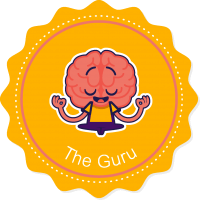Holistic education is an approach that focuses on the development of the whole person – mind, body, and spirit. It acknowledges the interconnectedness of various aspects of human experience and seeks to nurture learners in a comprehensive way.
Key Points:
Embracing Diversity: Holistic education values diversity in all its forms – cultural, linguistic, experiential, and more. It recognizes that every individual is unique and strives to create inclusive learning environments where all students feel valued and respected.
Integrated Curriculum: Unlike traditional education models that compartmentalize subjects, holistic education emphasizes the integration of knowledge across disciplines. It encourages interdisciplinary learning experiences that help students make connections between different areas of study and apply their learning in meaningful ways.
Focus on Personal Growth: Holistic education prioritizes the holistic development of students, including their cognitive, emotional, social, and spiritual growth. It emphasizes the importance of self-awareness, self-expression, and self-actualization, empowering learners to become active participants in their own learning journey.
Experiential Learning: Hands-on, experiential learning plays a central role in holistic education. Through activities such as project-based learning, outdoor education, and community service projects, students have opportunities to engage with real-world issues, explore their interests, and develop practical skills.
Cultivating Well-being: Holistic education places a strong emphasis on promoting the well-being of students. This includes supporting their physical health through activities like exercise and nutrition education, as well as addressing their mental and emotional well-being through mindfulness practices, counseling services, and peer support networks.
Environmental Awareness: Many holistic education programs incorporate environmental education and sustainability principles into their curriculum. By fostering an appreciation for the natural world and encouraging eco-friendly practices, students learn to become responsible stewards of the planet.
Conclusion:
In an increasingly complex and interconnected world, holistic education offers a compelling alternative to traditional schooling paradigms. By nurturing the mind, body, and spirit of learners, holistic education equips them with the knowledge, skills, and values they need to thrive personally, socially, and environmentally.


